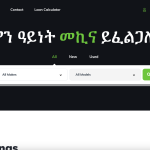
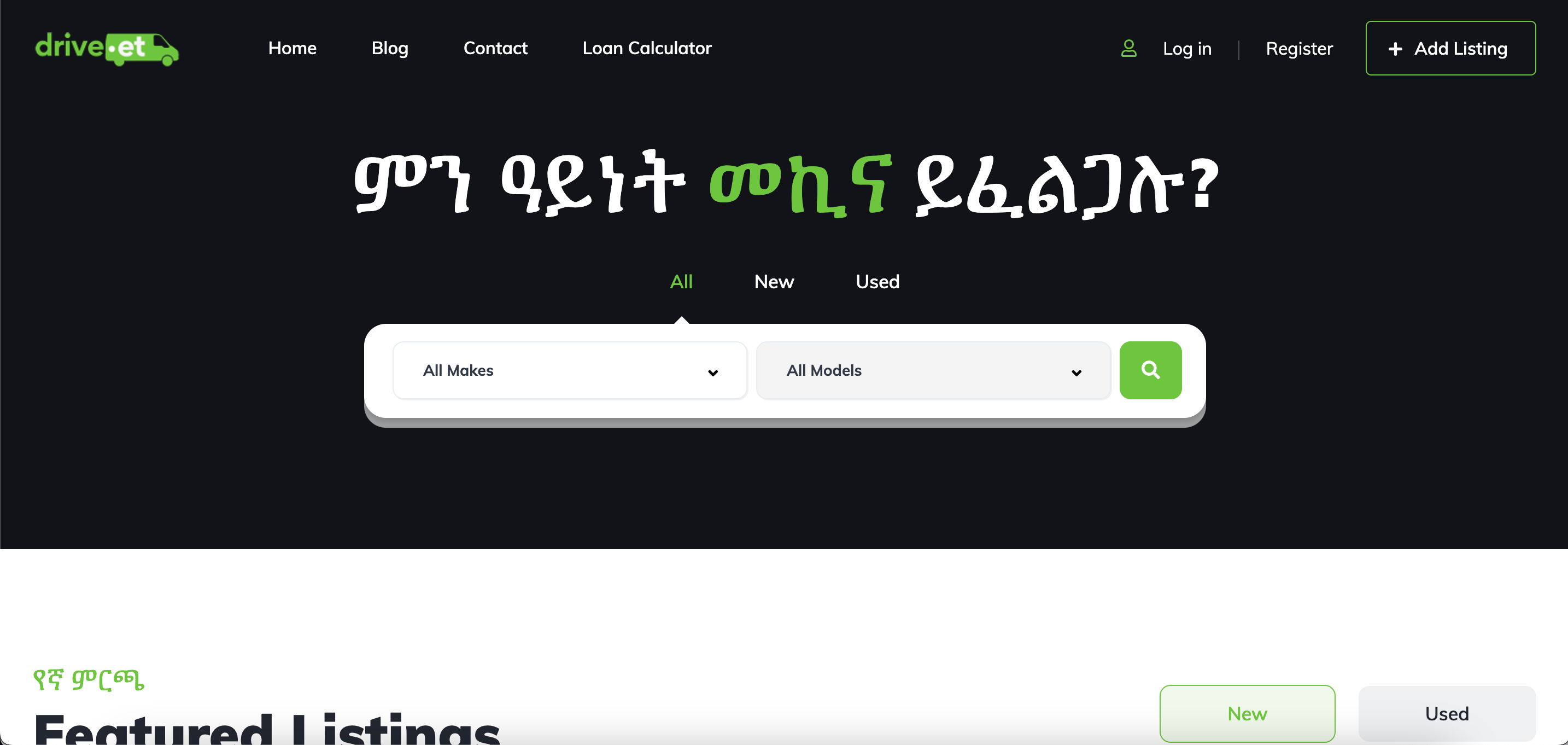
Buying Cars in Ethiopia: A Complete Guide to New, Used, and Electric Vehicles in Addis Ababa, Ethiopia
Depending on the type and model, there are choices from used car imports going as far back as the 90s, and brand new cars have just entered the market in addition to increasing prominence in a new entity, buying cars in Ethiopia is a thrilling but tricky process. Understanding the pros and cons of each choice, and important factors specific to the conditions in Ethiopia will assist you in making a proper decision if you are going to become a first-buyer or you are thinking about purchasing a new car, changing the previous one. Newcomers to the Ethiopian car market can obtain guidance about the most critical decision-making process by reading this guide below, which ranges from the classifications of new and used cars and the outlook for electric cars in the country.
Currently, the Ethiopian government has very ambitious policies to boost the demand and the use of electric cars (EVs) through tackling tax exemptions, import taxes, and investment in renewable power sources, with the aim of bringing down costs. Such measures are in line with Ethiopia’s Climate-Resilient Green Economy Strategy meant to reduce greenhouse gas emission and demand for fossil fuels. The benefits of EV are the following: reduction of fuel costs by one and a half to three times, lower maintenance costs and decrease in air pollution and the country’s reliance on imported oil. Additionally, growth of the EV mais, for instance, charging points with Ethiopia’s hydropower supply, offers clean sources of energy in vehicles while establishing the framework for a green and more sustainable economy.
On this page, it is essential to identify where to go for the perfect car in Ethiopia, where one could find the perfect fitted EV, and their cost in both online and physical markets.
Market Places
- Online EV Market Place In Ethiopia
In Ethiopia, the online EV car market is still growing, with several platforms displaying various types of electric vehicles (EVs). Here’s an overview of the types of EVs you might find on some of the most popular online vehicle sales websites:
1) Drive.et

Drive.et is a car site in Ethiopia which provides classifieds for new and used car sales. It gives users a relatively easy way to post, sell, or search vehicles in the country; in the adverts, users can find listings featuring the car’s specification, price, and condition and periodic time table. However, it is not only limited to them as anyone interested in accessing various listings for cars in Ethiopia can post, including dealerships. Drive.et also provides a filter by car make, model, year, fuel type, and other characteristics, which is designed to facilitate the streamlined targeting of car purchase/sale for Ethiopians.
drive.et also provides customers the low cost access to international auto vendors, thus linking people interested in importing cars from abroad. The platform is expanding to include spare parts in addition to cars to become a complete platform for vehicle needs in Ethiopia.The site acts as a mediator mediating between users, offering them a secure online environment in which they negotiate and arrange a transaction autonomously.
The website’s design is user friendly, featuring categorized listings for easy browsing and filtering based on price, model, and seller type. Additionally, the platform is expanding its offerings to include car spare parts, which enhances its value for users looking for comprehensive car related purchases in Ethiopia.
Price Range: ETB 800,000-15M
2. Mekina.Net
Mekina.net is amongst the most popular online automotive marketplaces in Ethiopia for users to buy, sell and rent vehicles. From individual sellers, brokers and local dealerships to a wide range of listings, it provides a diverse range of listings to suit almost everyone, and all budgets.
Price Range:E TB 720,000 to ETB 18M
3. Facebook Marketplace/Social Media Groups
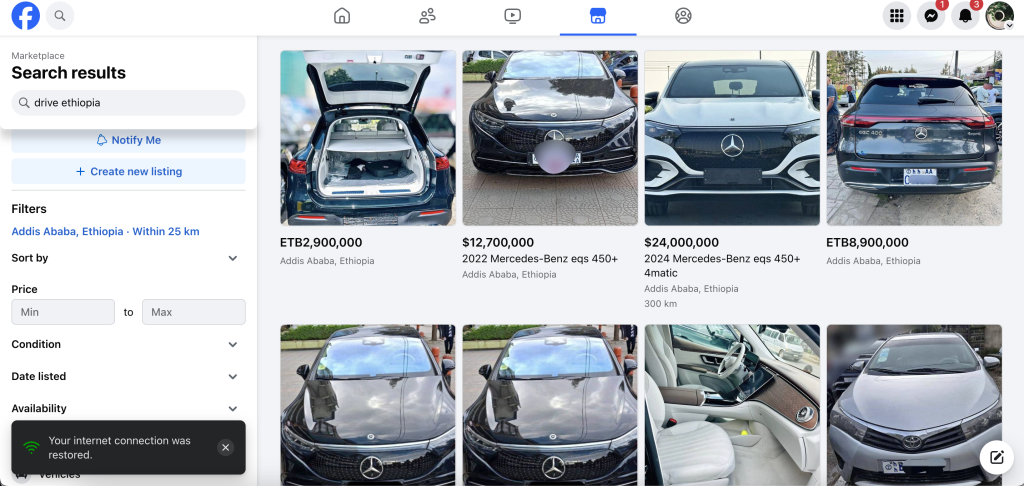
Types of EVs: Many Ethiopians buy and sell electric vehicles using Facebook Marketplace and car-specific groups such as “EV Ethiopia” or “Electric Car Buyers and Sellers.” These platforms have a wide range of used electric automobiles, from little cars like the Nissan Leaf to larger options like the Tesla Model S and BYD e6. The listings frequently feature a mix of high-end international names and more budget-friendly ones, particularly from China, which are becoming increasingly popular due to their affordability.
Price Range: ETB 550,000 to ETB 15M
- Face To Face (Dealership) EV Market Place In Ethiopia
In Ethiopia, the face-to-face (dealership) EV sector is progressively expanding, with several local dealerships and showrooms currently providing electric vehicles. This real marketplace allows prospective purchasers to look at several models in person, test drive them, and get on-site advice on finance and vehicle maintenance.
- Drive Ethiopia
Located in the heart of Bole, Drive.et is a trusted destination for quality cars in Addis Ababa. Whether you’re buying, selling, or looking for expert advice, drive ethiopia dealership makes car shopping experience smooth and hassle free. Offering a wide range of vehicles, from brand new models to reliable used cars, all tailored to meet the needs of Ethiopian car buyers.
There are physical “Drive Ethiopia(drive.et)” dealerships at which customers can get service or browse listings, and second, their listings are easily connected to the Mapcase platform. Users can browse ads of companies like Toyota, Hyundai or Mercedes Benz for used and new vehicles. Through collaboration with Ethiopian auto dealers, car importers and, and helping to match consumers with real locations where cars can be tested and or bought, the platform simplifies the process of car shopping by providing as much information about each vehicle’s model, mileage and fuel type as possible, as well as a simple and user friendly search and comparison experience..
- The motor and engineering company
The Motor and Engineering Company of Ethiopia (Moenco) is one of the largest car dealers and distributors in Ethiopia marketing Toyota and other main automobile brands. MOENCO, with branches in Addis Ababa, Adama, Hawassa, Bahir Dar, Mekelle and Dire Dawa, provides for vehicle sales as well as other maintenance, supplies of genuine parts and full support services after the sale. Based on its central location, especially in a paved and car dealerships and services area, their headquarters on Bole road in Addis Ababa serves as a primary head of their operation. Each MOENCO branch provides customized component queries and technical support in response to various customer needs. Inchcape PLC is a global distributor of automotive products, resulting in high quality automotive inventories and parts.
- Proxima Auto Car Sells
Ethiopian car dealership, Proxima auto has a wide variety of vehicles from differing global brands like Toyota, Hyundai, VW, Suzuki, and Nissan. They offer everything from gasoline, to hybrids, to electric automobiles for people of all budgets, a wide range of needs. This is the dealership located close to the Addis Hiwot Hospital of the Atlas Bole region. Moreover, it creates custom financing solutions for users through linkages with local banks which enables consumers to acquire their dream vehicles on flexible repayment schemes.
The Most Common challenges you face when you buy an EV Car
For first time electric vehicle owners in Ethiopia, there may be hurdles, but by understanding them, and planning for them, the process of transitioning can be simplified. A major hurdle is the lack of charging infrastructure — while charging stations are proliferating in cities like Addis Ababa, there remain few such stations across rural areas. Having a home charger when possible is advised, especially as EVs require much less maintenance, while technicians and parts for EVs are still scarce, so getting a dependable EV model with service in Ethiopia is also essential. Also it is important to note that some EVs will initially be more expensive, so buyers should also check out the government’s incentives, such as tax cuts or lower import duties. First time EV purchasers in Ethiopia can maximize their EV ownership by carefully choosing an EV that is suitable for your driving range and maintenance needs as well as being aware of the local infrastructural changes.
Buying New vs. Used Cars in Ethiopia
When picking between new and used cars, it is critical to consider the benefits and drawbacks of each. Both choices have their place in the Ethiopian market, but your choice will be determined by a number of criteria, including your budget, maintenance expenses, spare parts availability, and long-term requirements.
Advantages of Buying New Cars
1.Reliability and Warranty: New automobiles come with manufacturer warranties, which can provide you peace of mind about repairs and maintenance for the first few years. This is especially useful in countries like Ethiopia, where finding components for older automobiles can be difficult.
2. New Technology and Safety Procedure: New cars include the most up-to-date features in terms of safety, fuel efficiency, and technology. In addition to being more ecologically friendly, they frequently include improved air conditioning and suspension systems, which are critical for Ethiopia’s varied road conditions.
3. Longer Lifespan: When properly maintained, new cars last longer than used ones. If you intend to maintain your vehicle for many years, a new car may be a wise purchase.
Disadvantages of Buying New Cars
1. Rapid depreciation. New cars depreciate quickly, generally by 20-30% in their first year. This implies you’re paying a premium that you won’t get back if you decide to sell in a few years
2. Higher initial cost. New autos are often more expensive than secondhand cars. You will most likely pay more upfront or take out a larger loan, resulting in higher monthly payments or longer loan terms.
3. Expensive Customization Add-ons
Dealers frequently pitch additional amenities, making a new automobile even more pricey. The value of these add-ons is often not reflected in the resale value.
When making a decision, it’s important to consider the negatives against the positives of owning a new vehicle, such as dependability, technology, and warranty coverage.
4.Potentially lower resale value
If you decide to trade in or sell your car after only a few years, you’ll probably get significantly less than you spent owing to depreciation. Many used cars retain their worth better throughout the first few years.
Advantages of Buying Used Cars
- Cheaper Cost: The most obvious advantage of purchasing a used vehicle is the cheaper purchase price. Used cars are often far less expensive than new vehicles, making them an appealing option for budget-conscious customers.
- Slower Depreciation: Because used cars have already suffered the majority of their depreciation, they will retain their value better than new cars in the first few years.
- Affordable Insurance: In most cases, insuring a used car is less expensive than insuring a new oIf you happen to acquire a popular used model, its resale value may remain high, allowing you to recuperate a larger portion of your investment when you sell it. This is especially true for durable models that hold their value well in Ethiopia.
- Easier negotiation and customization
Used car sales can provide greater room for price negotiation, allowing you to discover a deal that matches your budget. Furthermore, the cost of adding desired features or customizing a used automobile is typically lower than adding choices to a new one, which can result in significant long-term savings.
5. Lower risk of high-tech issues
Many second hand vehicles are simpler than newer models, with fewer high-tech features that can be costly to fix. In a location where simple, sturdy automobiles are frequently preferred, this can make ownership easier and less expensive.
Disadvantages of Buying Used Cars
- Maintenance & Repairs: Depending on the car’s age, a used vehicle may require more frequent maintenance. It can also be harder to find spare parts, especially for less common makes or older models.
- Unknown History: Used cars can have hidden issues such as accidents, odometer tampering, or previous mechanical problems. It’s essential to thoroughly inspect a used car and verify its history before buying.
Top 10 New EV Cars for Ethiopia (2024)
Ethiopian electric vehicle owners may get off to a bumpy start, but knowing what to expect and being prepared may ease the pain it causes. A major obstacle is a lack of charging infrastructure, as charging stations are springing up in cities like Addis Ababa but it’s few in rural areas. The lack of maintenance and frequent charging also keeps EVs simpler than older cars; however, looking for a model capable of receiving its parts and relying on the nearest experienced technician is crucial, and new EV owners should also consider installing a home charger, if possible, which provides regular power supply. Moreover, while those higher EV costs apply upfront, buyers should investigate government incentives, in the form of tax cuts, or import duty reductions, which could help offset some of the greater up-front EV costs. Making an informed decision on which EV to own and use would also ensure that first time purchasers maximize their EV ownership in Ethiopia, and that they maintain their EV in the best possible way.
A.The Changan E-Star
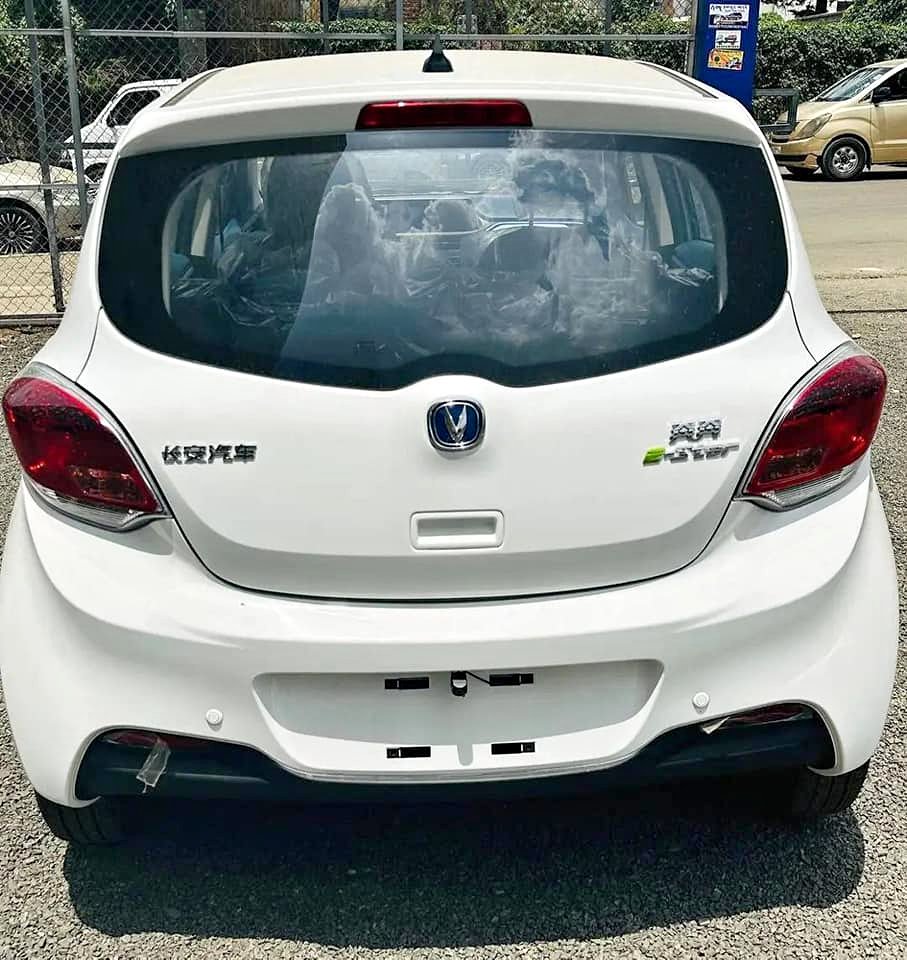
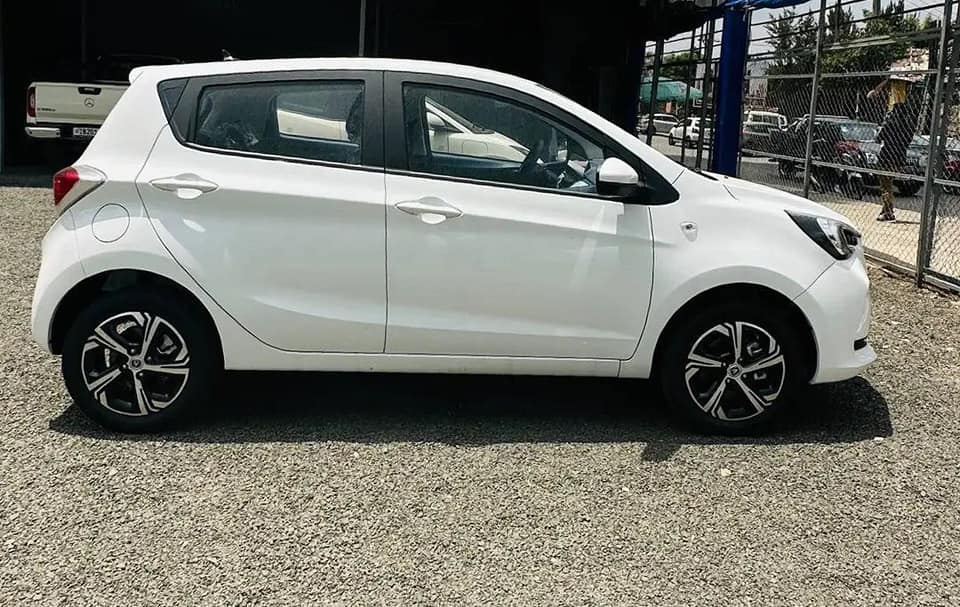
It is a compact electric car built for urban transportation, with a useful range, easy charging, and vital safety features that make it appealing to Ethiopian purchasers. With a range of approximately 300 kilometers on a full charge, it is suitable for city driving, and it can be charged from 30% to 80% in less than an hour using fast charging. The E-Star comes with standard safety equipment such as airbags, ABS, and rear parking sensors. Its affordability and low operating expenses, combined with its environmental benefits, make it an intriguing option for Ethiopia’s growing EV industry.
Price Range:Typically priced around 1.9-2.3M ETB
Pros and cons
Pros: Affordable, economical range for city driving, and low
Cons: Limited long-distance range, less advanced features than luxury EVs, and compatibility issues with Ethiopia’s still-developing EV infrastructure.
B. BYD Seagull.
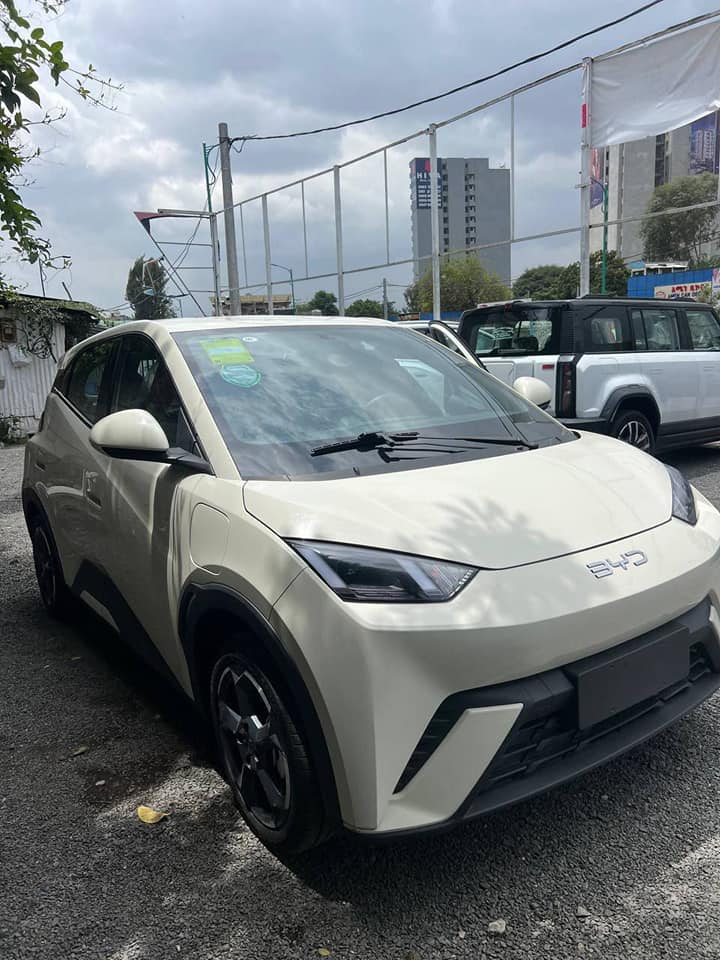
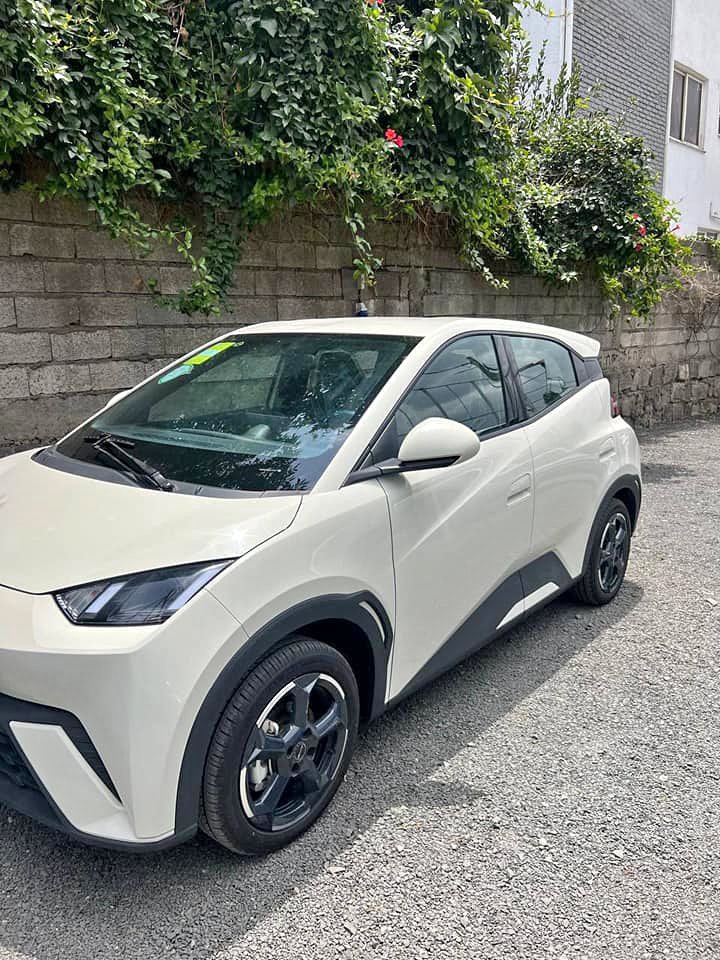
Model: Seagull EV.
The BYD Seagull is a tightly packed low-cost electric vehicle (EV) built for urban use. It has an amazing range, easy charging, and critical safety features, making it ideal for Ethiopian buyers. The Seagull has a range of around 300 kilometers on a full charge, making it suitable for both everyday commutes and short trips. It has fast-charging capabilities, allowing it to charge from 30% to 80% in around 30 minutes, making it convenient for city drivers. Airbags, anti-lock braking system (ABS), and electronic stability control (ESC) all help to ensure safe city driving in a variety of situations. The Seagull’s price, efficiency, and environmentally friendly design make it a tempting alternative for Ethiopian purchasers as the country’s EV infrastructure expands.
Price Range: 2.7- 3M ETB
The BYD Seagull is projected to cost roughly 2.8M
Pros and cons
Pros: Economical, dependable range for urban driving, fast charging capability, low maintenance expenses, and environmentally friendly.
Cons: include a limited range for long-distance driving, fewer advanced features than higher-end EVs, and potential charging infrastructure issues outside of large Ethiopian cities.
The BYD Seagull is a practical, cost-effective EV alternative that could be an excellent choice for Ethiopian urban drivers looking for economical, sustainable mobility.
C.The BYD Seal
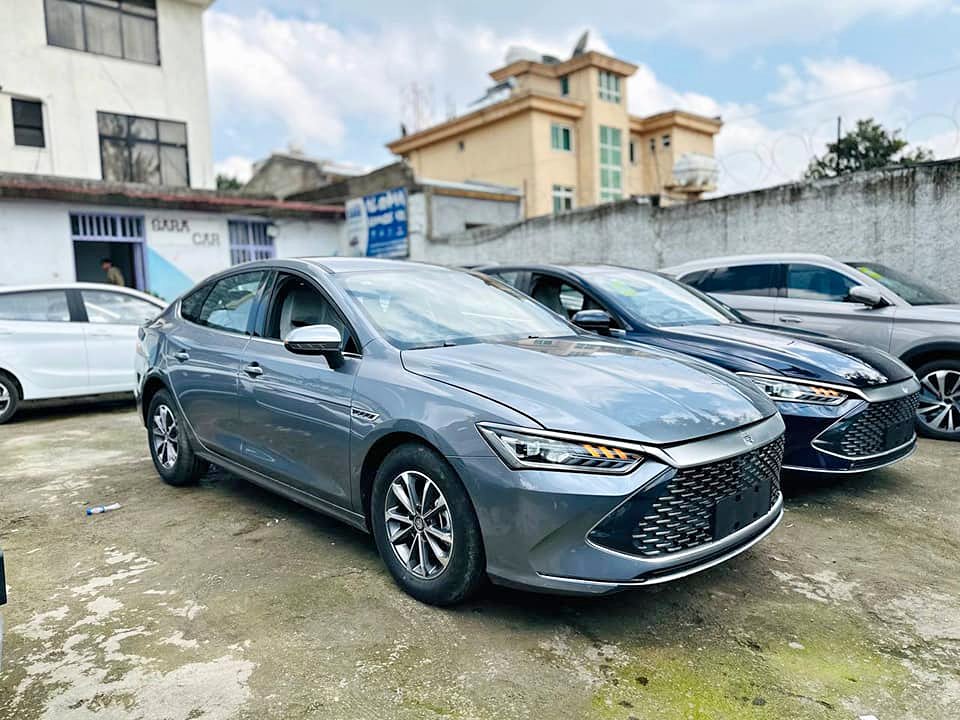
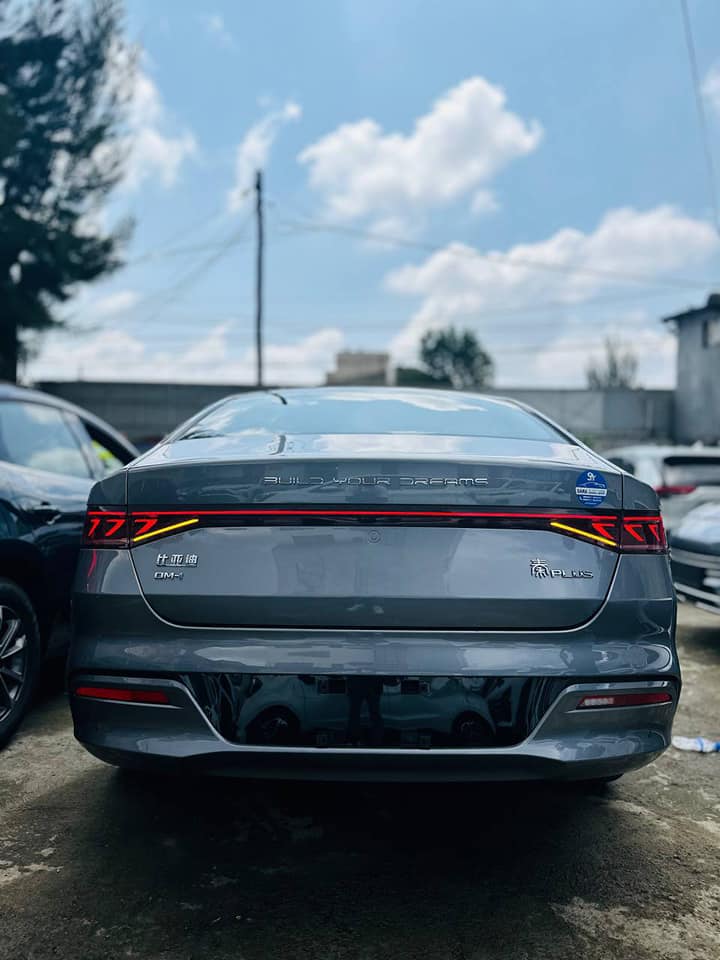
An excellent range, cutting edge technology, and a beautiful, high performance electric sedan, perfect for city driving or highway traveling. The Seal offers a range of up to 700 kilometers on a full charge (depending on the version) and is perfect for those for whom the car is for long commutes or interstate travel. It also offers quick charging, which gives you from 30 to 80 per cent charge in 30 minutes. Safety features include lane keeping assist, automated emergency braking, adaptive cruise control, and a list of airbags. Besides being a dependable and luxury EV alternative for Ethiopian shoppers, its sleek style, extended range and premium amenities serve as the attractions for shoppers.
Price Range:
pricing range: 3.8-5M ETB
Pros and cons
Pros: Long range, quick charging, comprehensive safety and driver assistance features, stylish design, and powerful performance.
Cons: Expensive, reliant on creating charging infrastructure in Ethiopia, and may not be suitable for tough, off-road environments.
Both the BYD Song Plus and BYD Seal have outstanding range, superior safety, and cutting-edge technologies that could appeal to Ethiopian purchasers, particularly those in metropolitan locations with developing EV infrastructure.
D. Toyota bZX(Beyond zero)
D.1 Toyota BZ3X: Car Name and Model
Model: bZ3X EV (from Toyota’s “beyond Zero” EV series)
If you’re looking for an electric SUV that is dependable, gets from point A to B efficiently, but is also fun to drive and for city and light off road driving, then the Toyota bZ3X is for you. With a prospective range of 300-400 kilometers on a full charge, the 300-400 kilometers on a full charge, the bZ3X is anticipated to serve Ethiopian drivers alike in the cities and suburbs. The bZ3X offers the convenience of fast charging, which gets you 80 percent of battery in about 30 minutes, ideal for the daily commute. It makes use of adaptive cruise control, lane departure alert, automatic emergency braking and several airbags as part of a package called Safety Sense.
Price Range Approximate price: 3.9-4.2M ETB
Pros and Cons Pros: Reliable range for urban driving, quick charging, advanced safety features, and Toyota’s reputation for durability.
Cons: Limited range for long-distance trips, higher primate range for long-distance trips, higher price point compared to some EVs, and limited charging infrastructure outside urban areas.
D.2 Toyota BZ4X: Car Name and Model
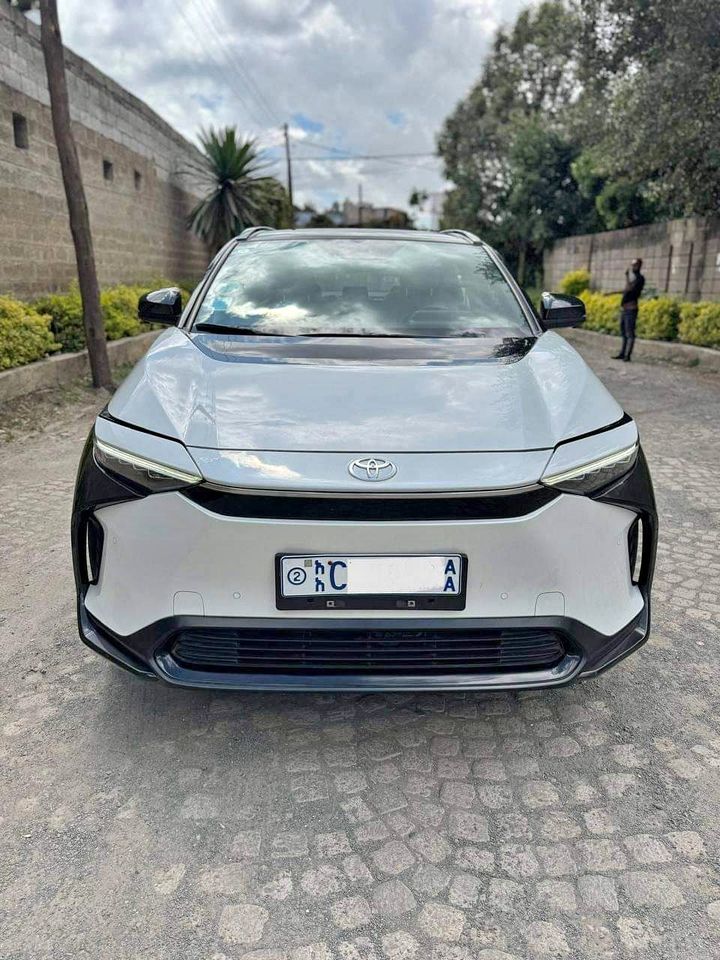
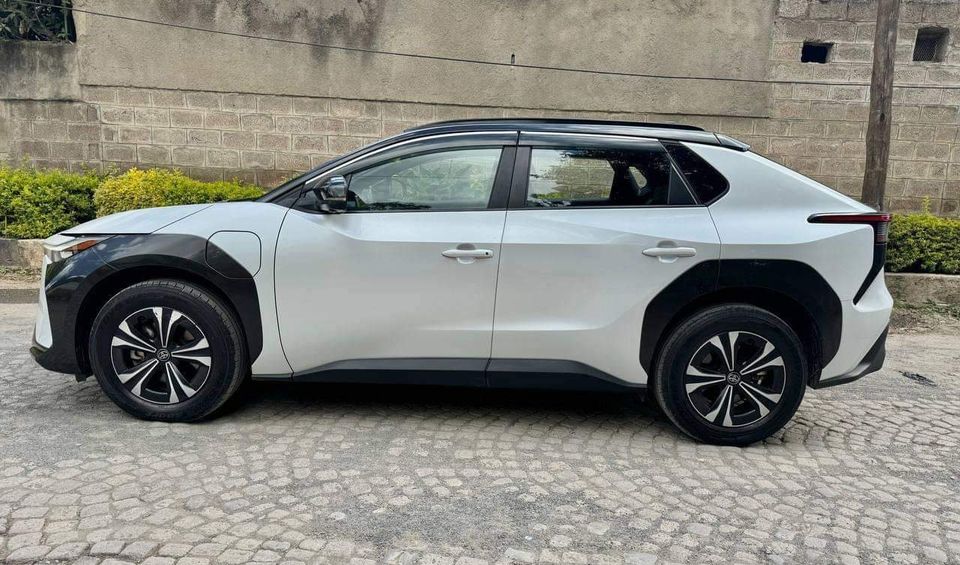
Model: BZ4X EV
The Toyota bZ4X is a mid-size electric SUV with a longer range, greater safety features, and Toyota’s most advanced EV technology. The bZ4X has an estimated range of up to 500 kilometers on a full charge, making it suited for both city driving and longer road journeys throughout Ethiopia. It features quick charging, allowing for a charge of 30% to 80% in around 30 minutes. The bZ4X comes with Toyota’s Safety Sense system, which includes lane tracing help, a pre-collision system, adaptive cruise control, and blind-spot monitoring. The bZ4X’s larger interior, extended range, and durable build make it a strong option for Ethiopian consumers looking for a family-friendly electric vehicle.
Price Range:
The approximate price ranges from Approximately 4.5–6.9M ETB
Pros and cons
Pros: Extended range, sophisticated safety features, large interior, dependable performance, and light off-road capability.
Cons: Premium pricing range, need for a stable charging network, and greater initial cost may deter budget-conscious consumers.
E. Volkswagen ID.4: Car Name and Model
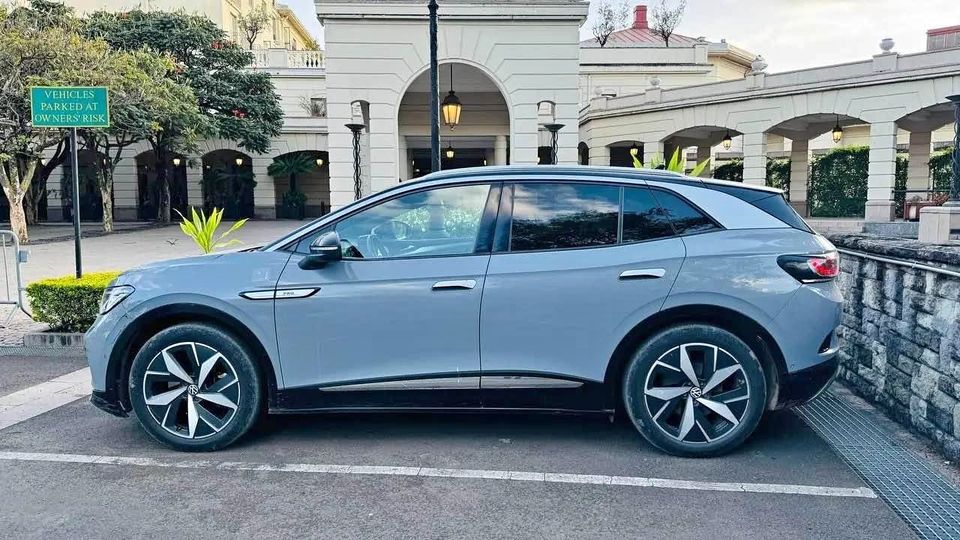
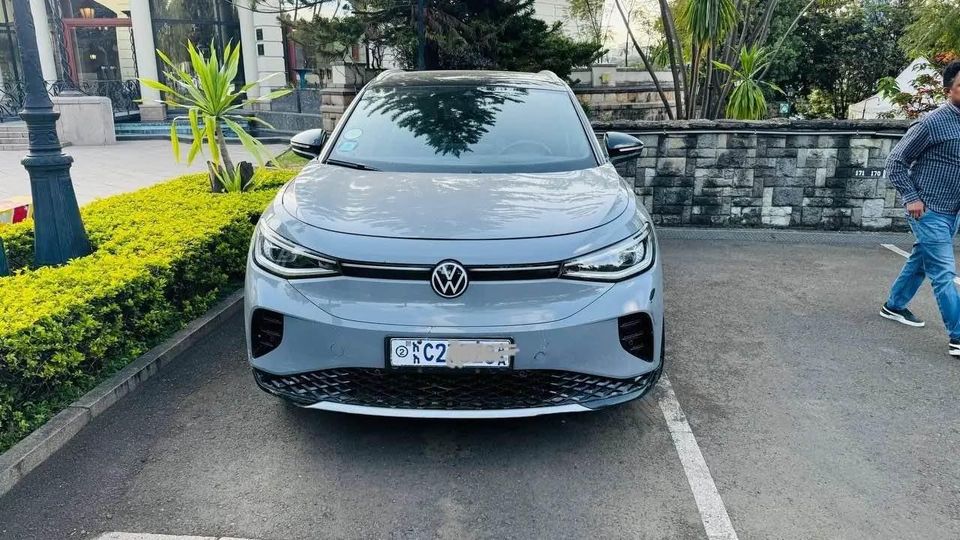
Model: ID.4 EV (small crossover SUV).
The Volkswagen ID.4 is a compact electric SUV with a smooth driving character, a large interior with innovative technology, aimed at people living in cities and on the outskirts who want to get into this type of car. With up to 520 kilometers range on a full charge, the ID.4 is the perfect vehicle for short daily commutes and occasional longer distances. With charging stations around, the ID.4’s fast charging capacity allows drivers to charge from 10% to 80% in around 30 and 40 minutes which means more freedom for those with charging stations. Active safety technologies used on Volkswagen’s IQ.DRIVE include adaptive cruise control, lane keeping assist and blind spot monitoring as well as front and rear parking sensors. Ethiopian society prefers the ID.4 in which it sees in it a blend of eco friendliness, safety and performance.
Price Range:
Estimated price: 4.1-7M
Pros and cons
Pros: Long driving range, quick charging, roomy interior, improved safety features, and high brand reliability.
Cons: Expensive price, reliance on charging infrastructure, and potential maintenance issues in underserved regions.
F. Mercedes EQS
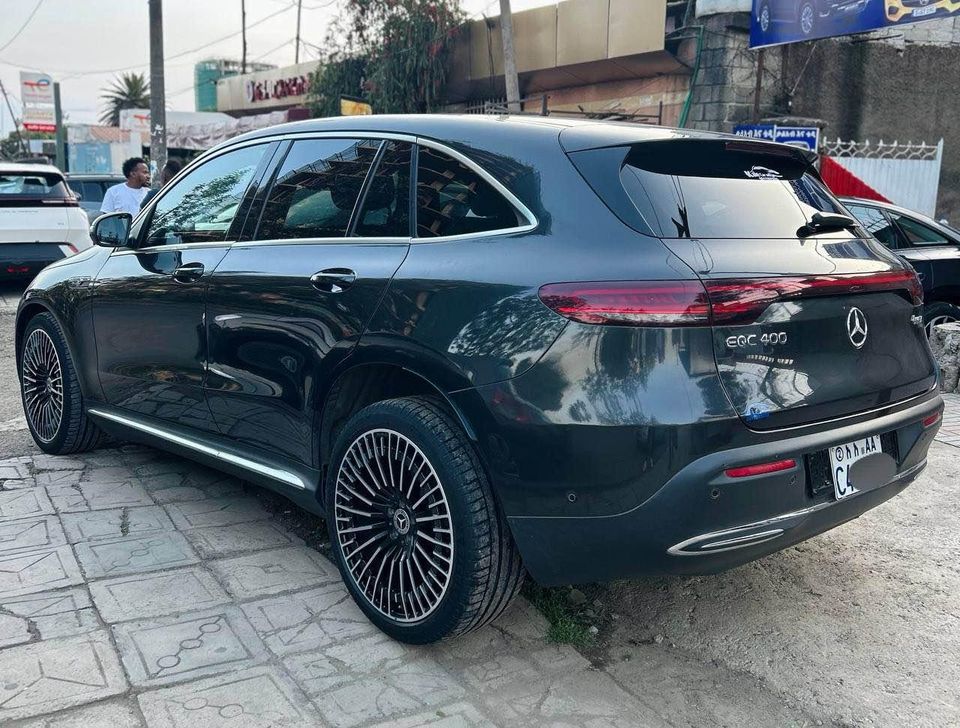
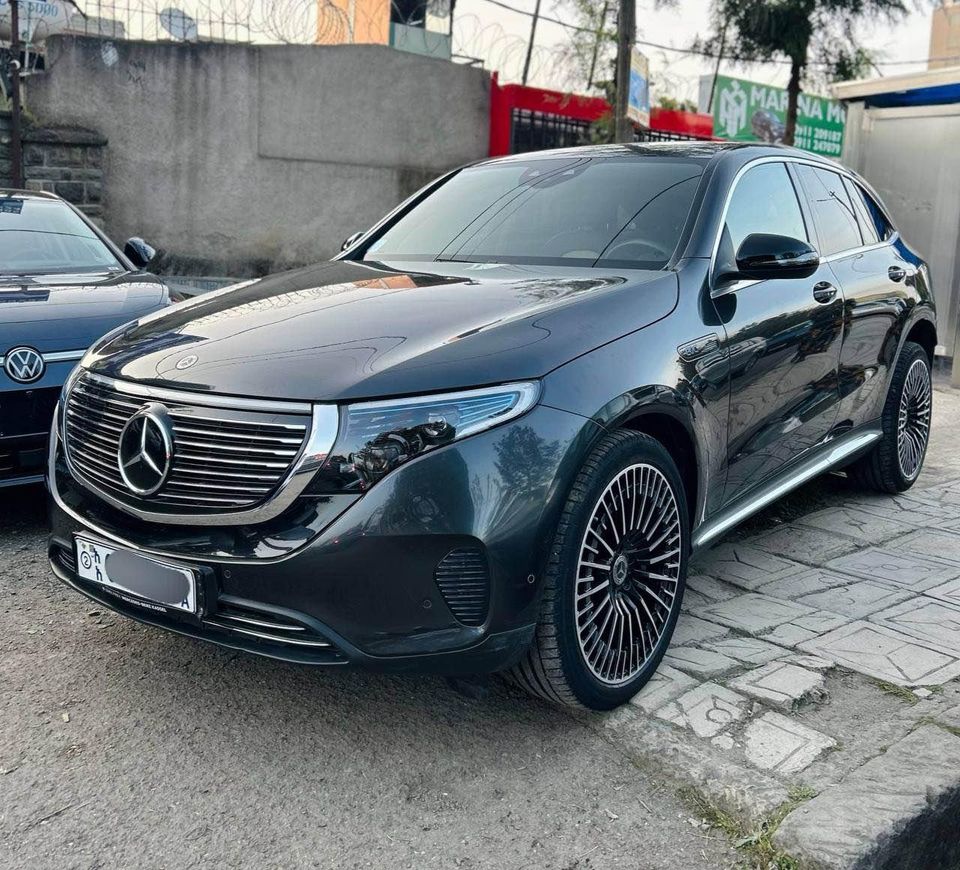
Model: EQS 580 4MATIC (luxurious electric sedan).
The Mercedes-Benz EQS is a flagship luxury electric sedan built for high-end customers who value performance, range, and cutting-edge technology. The EQS has a remarkable range of up to 770 kilometers on a full charge (depending on the model), making it ideal for both city driving and long-distance travel. With ultra-fast charging capabilities, the EQS can charge from 10% to 80% in just 30 minutes using high-power charging stations. The vehicle comes with innovative safety technologies such as active lane-keeping assist, adaptive cruise control, automated emergency braking, and a complete airbag system..
The EQS’s luxury style, long-range capabilities, and modern safety technology make it an excellent choice for Ethiopian buyers seeking a high-end electric car that provides both comfort and sustainability.
Price Range:
Estimated price: 13-29M ETB
Pros and cons
Pros: Long range, elegant cabin, cutting-edge technology, quick charging, and improved safety features.
Cons: Expensive, reliant on premium charging infrastructure, and may not be suitable for Ethiopia’s underdeveloped roads or charging networks in rural locations.
F.2 Mercedes EQC
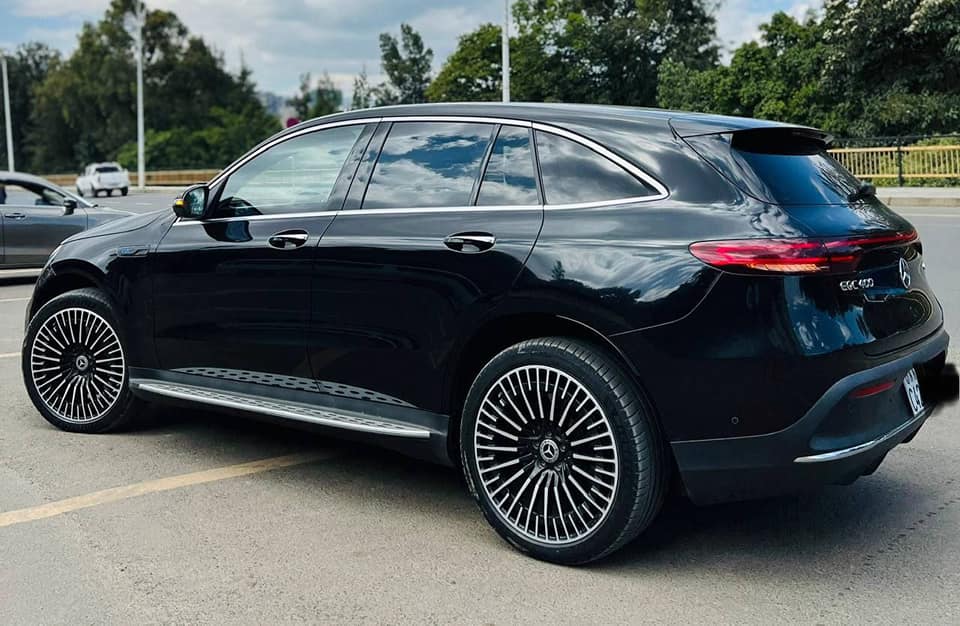
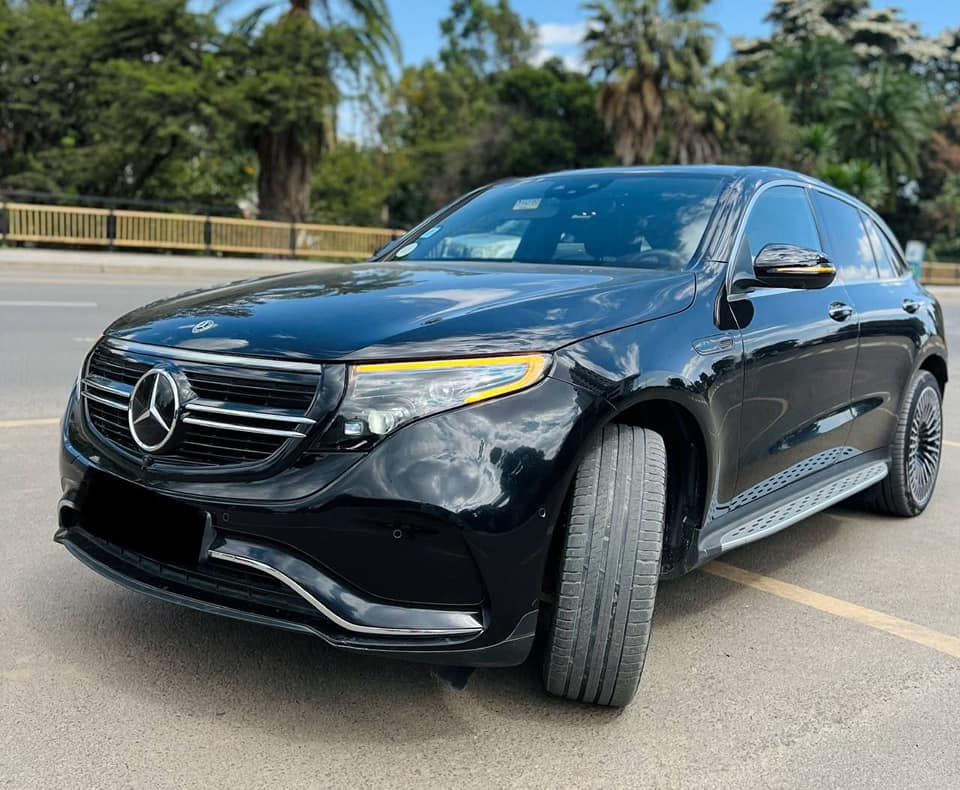
Model: EQC 400 4MATIC (electric compact luxury SUV).
Mercedes-Benz EQC is a high class electric SUV with good performance, comfort, and new trend technology. Being capable of everyday commuting and short to medium distance trips that can range up to 400 kilometers on a full charge, the EQC is an efficient choice. Quick charging is supported, with fast chargers able to top 80% within about 40 minutes. Mercedes’ safety equipment including active brake assist, lane keeping assist and a number of airbags all feature in the EQC. The interior is spacious enough whereby you get modern latest infotainment systems that make sure of a premium driving experience. For Ethiopian consumers, the EQC is a superb blend of performance, utility and grace, with a smaller footprint than the EQS.
Price Range:
Estimated price: 12,500,000-24M
Pros and cons
Pros: Luxurious features, outstanding safety technology, long range for city and intercity travel, quick charging, and a strong brand image.
Cons: High price, limited range for long-distance travel compared to other EVs, and reliance on Ethiopia’s fast-charging infrastructure.
G.Polestar 2
Model: Polestar 2EV (Electric Sedan)
A beautiful, high-performance electric car that will take you from point A to point B like a boss while also offering modern style, cutting edge technology. The Polestar 2 has a range of up to 470 km (depending on battery configuration) and is an appealing option for Ethiopian shoppers looking for an electric car for city and intercity driving. However, the vehicle also has a rapid charging so it can recharge from 10% to 80% in about 30 minutes at these fast charging stations, which ideally suits longer trips. The available safety features include Pilot assist with adaptive cruise control, lane keeping aid, automated emergency braking, and a 360 degree camera.
Polestar 2 has a basic but high tech interior including a Google powered infotainment system and large touchscreen interface. The Polestar 2 provides cheerful performance, safety and design which make it an ideal vehicle for Ethiopian buyers seeking a high quality, green car for everyday use.
Price Range:
ETB Estimate: Around 6.3.-9.4M ETB (subject to exchange rates and import costs).
Pros and cons
Pros: Extended driving range, quick charging, sophisticated safety and driver aid systems, a quality interior with tech integration, and a great brand appeal.
Cons: High pricing, limited charging infrastructure in rural Ethiopia, and perhaps greater maintenance expenses than more mainstream EV models.
H. Audi e-tron
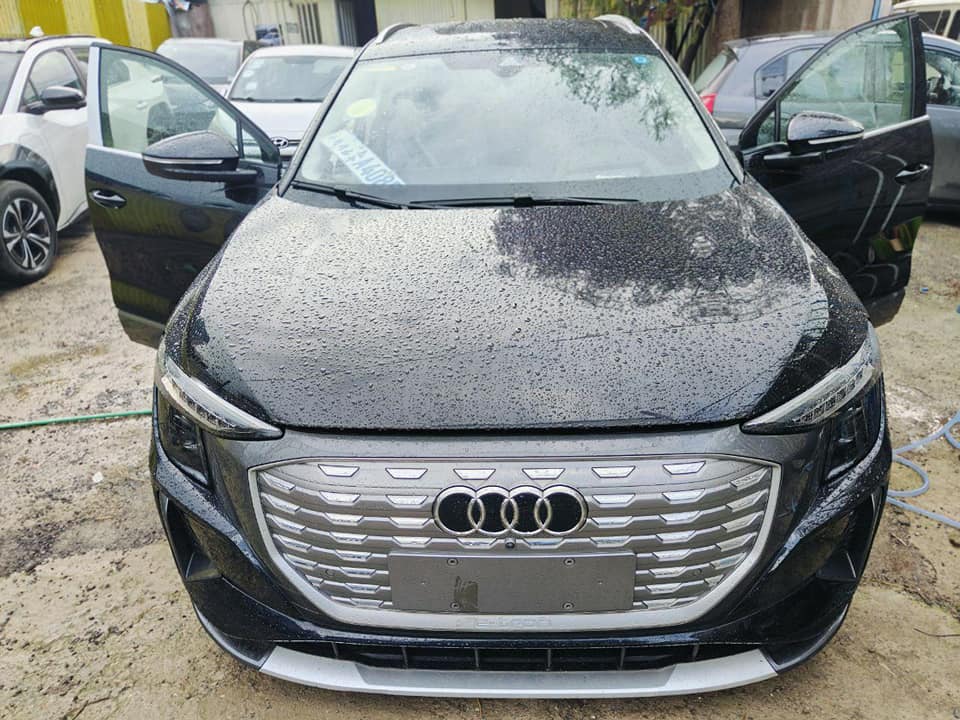
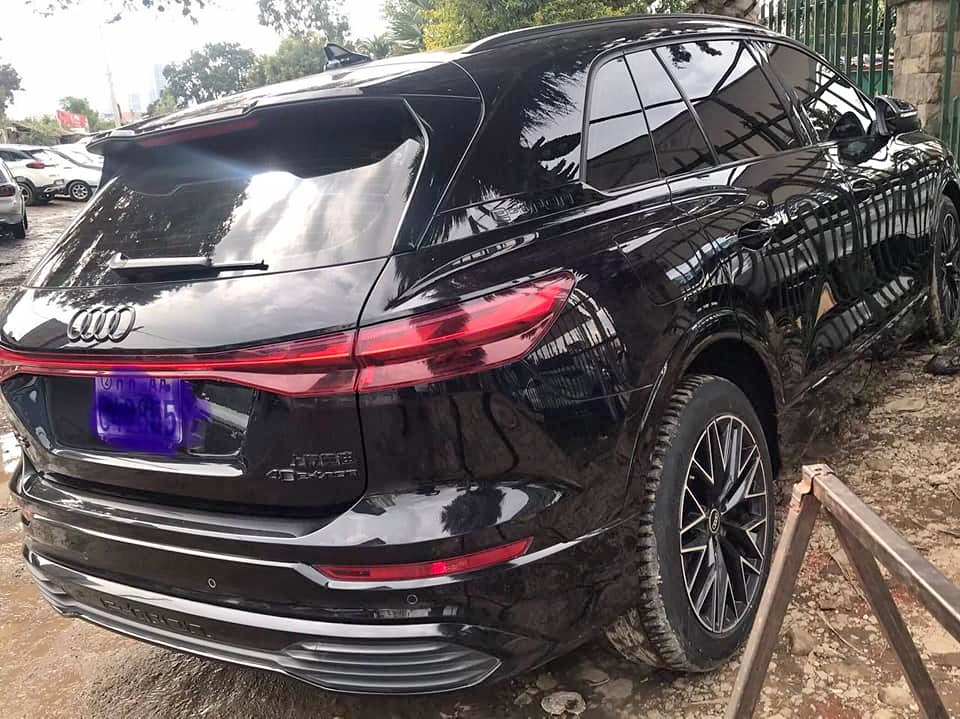
Model: e-tron 55 Quattro (electric SUV)
A luxury electric SUV, the Audi e-tron is a high performance, comfortable plot with the latest technology. The e-tron has a range of 400 kilometers or 250 miles on a full charge on the current models (250 miles on the newer car), and offers a great purchase for Ethiopian buyers looking for a good city and longer distance car. Rapid charging makes a quick charge, the battery can be charged from 10 to 80 over 30 minutes at a high power charging station. Adaptive cruise control, lane keep assist, automated emergency braking and a solid airbag system are key safety items.
The e-tron also has a nice cabin by styling standards, that is rich with very best materials, modern electronics and driver aid technology. As the premier, all-electric SUV from premium automotive manufacturer Audi, the Audi e-tron becomes an ideal selection for Ethiopians that seek a luxurious SUV with optimized performance, yet embraces an environmentally sustainable stance – specifically for urban dwellers with limited EV infrastructural development.
Price Range:
ETB Estimate: Around 4.7-13M
Pros and cons
Pros: Long range, fast charging, quality interior, modern safety systems, and good performance on the road. Audi’s brand reputation is for excellence and luxury.
Cons: High pricing, limited charging infrastructure outside of Ethiopia’s major cities, and perhaps greater maintenance costs as compared to less priced EVs.
I.Ford F-150 Lightning
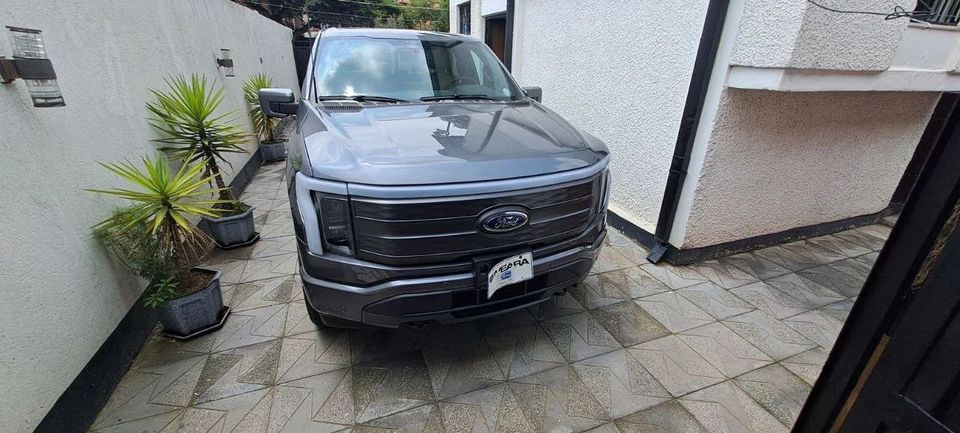

Model: F-150 Lightning (electric pickup truck)
The new Ford F-150 Lightning offers the iconic Ford F-150 pickup truck modernized with the durability of a good old workhorse, along with the benefits of electric propulsion. With it’s range of up to 370 kilometers on a full charge, it’s perfect for day to day use and longer rides, especially in urban or semi urban setups. It has rapid charging capability that means the F-150 Lightning can go from 15 percent to 80 percent in less than 40 minutes when using approved fast chargers . With a towing capacity of up to 10,000 pounds (depending on configuration) it is ideal for moving heavy loads, something helpful to Ethiopian buyers from industries including construction, agriculture, and transportation. Ford Co-Pilot360 offers lane keeping assist, automatic emergency braking, adaptive cruise control and a 360 degree video system. The F-150 Lightning is a good vehicle option for Ethiopian consumers who simply need a trusty, powerful vehicle for work.
Price Range:
ETB Estimate: Around 2,200,000-4,950,000 / 5M ETB (depending on exchange rates and import fees).
Pros:
- Strong range and quick charging capabilities
- Impressive towing capability and payload; ideal for work and heavy-duty use.
- Advanced safety features and technical integration
- An environmentally friendly alternative to standard gasoline-powered trucks
- Large interior and contemporary infotainment system off-road excursions while also embracing sustainability.
Cons:
- Higher beginning price than typical trucks.
- Charging infrastructure may still be limited outside of large Ethiopian cities.
- The large size may not be appropriate for urban driving or tight routes.
- Limited charging stations, especially in rural or distant places, can impede long-distance driving.
Importing Car Options in Ethiopia
One of the main downsides of importing an electric vehicle —EV— in Ethiopia is that you have to deal with approved car dealers being used or some international shipping services. EV users have the option of purchasing it from authorized distributors, including Belayab Motors (the official dealer for companies like BYD, Chery and others), and Mitsubishi Motors Ethiopia for after sales services. Additionally, third party importers of electric vehicles can import Tesla automobiles. However, some purchasers explore internet platforms and automotive sites where they offer to coordinate local sellers with overseas EV providers, but it is important to verify that the vehicle has the necessary documentation to pass the customs import and local registration as the EV sector grows, multiple Ethiopian dealers are adding more electric car alternatives to their inventory and the government is bound to create much more soft and hard laws designed to incorporate more EVs into the country’s road infrastructure.
Exploring EV Charging Stations and Home Charging Solutions in Ethiopia
As Ethiopia’s electric vehicle (EV) market grows, the building of EV charging infrastructure becomes more vital. Currently, the availability of public charging stations is limited, with most focused in major regions such as Addis Ababa. This presents a substantial hurdle to widespread EV adoption, especially in rural areas where charging points are few. However, attempts to expand the network continue, with both the government and the commercial sector adding new charging outlets. For Ethiopian EV owners, at-home charging is a convenient option. Many EVs include home charging equipment that may be put in residential areas, allowing drivers to charge their vehicles overnight. This solution is convenient and reduces reliance on public charging facilities.As charging infrastructure improves and incentives for EV adoption increase, Ethiopia’s electric mobility future appears hopeful.
Conclusion
Getting a car in Ethiopia is a great experience; especially the delightful weather that the country has been experiencing lately with all the hardships. Before making your decision, think about your budget, maintenance requirements and your long term goals. Your everyday commute may be the easier with the correct car, navigating rural roads may be easier with the correct car, and you’ll be helping to create a cleaner future with an electric car. If you’re shopping for a used car in Ethiopia, Drive.et is the place to get an up to date listing and sometimes even help with an individual car. One of our upcoming blog’s we will explore how you can purchase your dream car in a unique way that can save you money and make your life simpler and your dreams feasible. Please leave a comment down below, so you can help us unleash your thoughts on our writings.
Add a comment Cancel reply
Comments (0)
Categories
- Uncategorized (2)
Recent Posts
About us

Related posts



